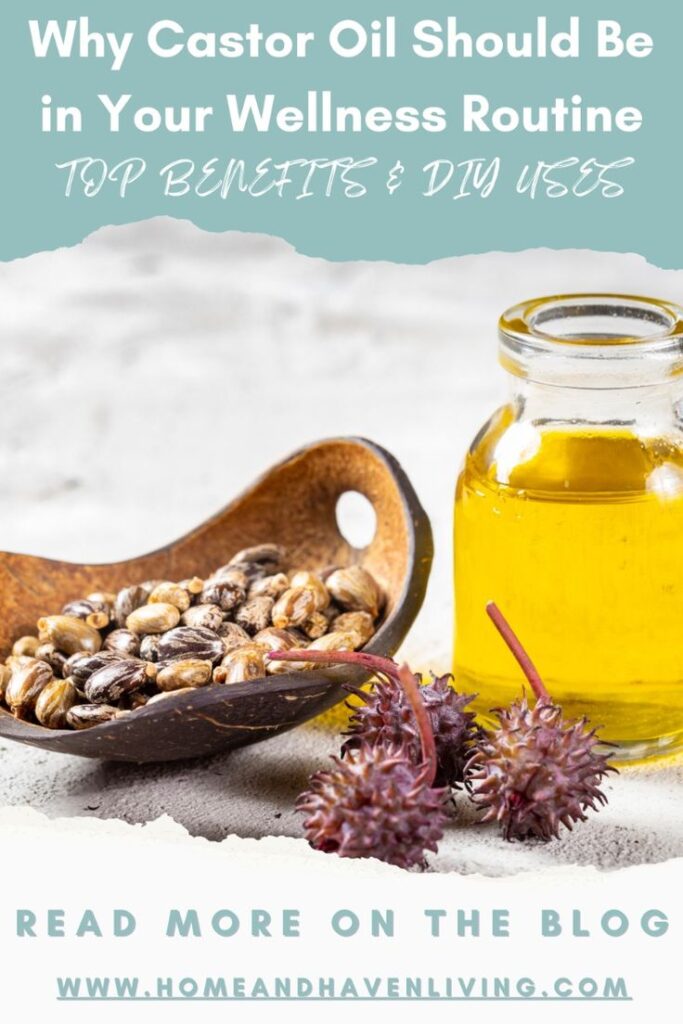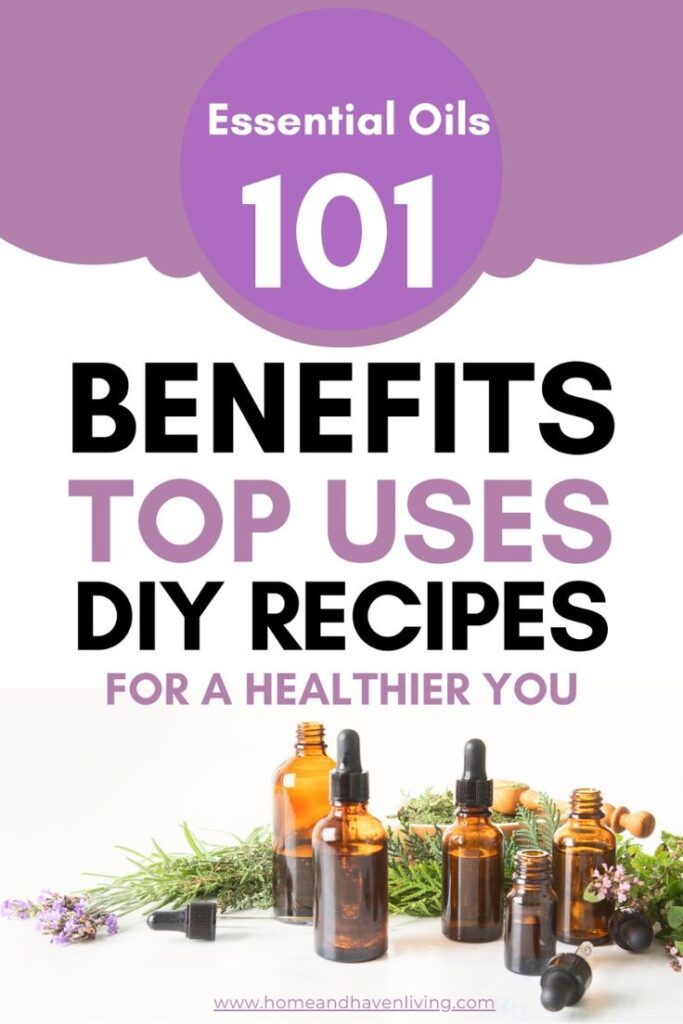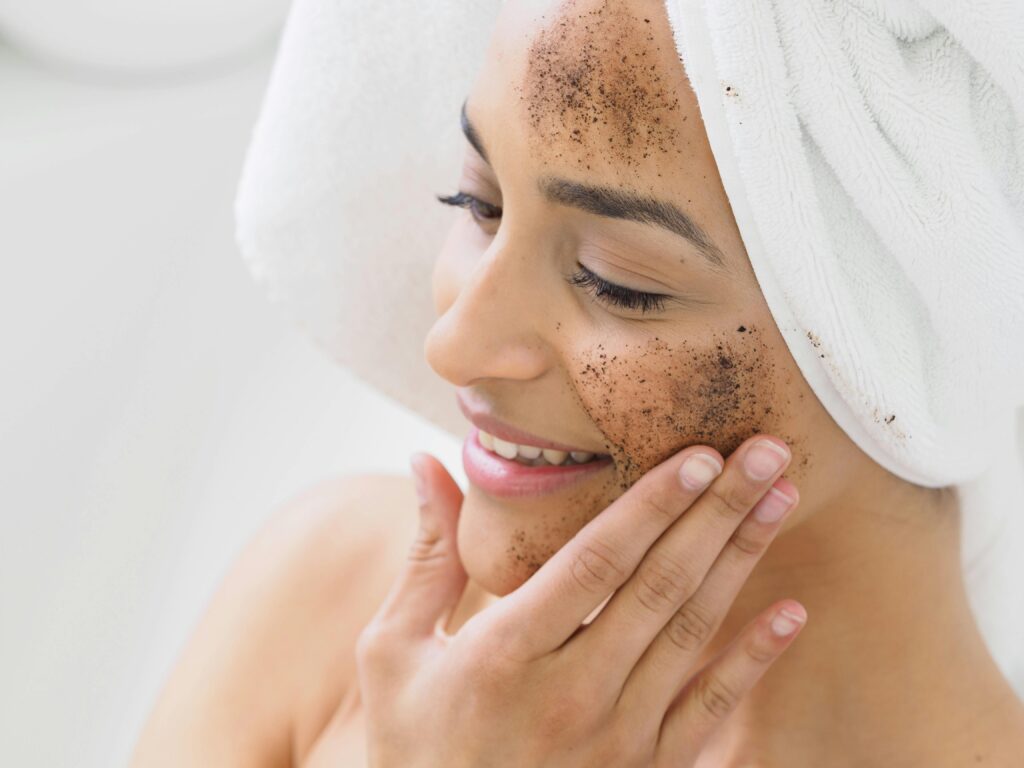Natural Remedies for Skin Conditions: Top DIY Solutions That Work
Getting radiant, healthy skin doesn’t need to cost a fortune. Nature is full of effective, gentle remedies for various skin issues. This guide will show you the best natural solutions for common skin problems. It’s all about taking charge of your skincare and enjoying the benefits of natural ingredients.

Key Takeaways
- Discover the power of natural ingredients like aloe vera, coconut oil, and castor oil for skin health
- Learn about the benefits of natural remedies over commercial skin care products
- Explore a variety of DIY solutions for addressing acne, eczema, rashes, and other skin conditions
- Understand the importance of safety considerations when using natural skincare treatments
- Gain insights into the science behind the effectiveness of natural skin care solutions
Understanding Common Skin Conditions and Natural Treatment Approaches
Natural remedies offer a gentle and effective alternative to commercial products for skin care. They are beneficial for various skin conditions, such as acne and eczema. It’s important to understand which conditions respond well to natural treatments and the benefits they offer. Safety considerations are also key for those seeking holistic solutions.
Types of Skin Conditions That Respond to Natural Treatments
Skin diseases affect people worldwide, regardless of age. Herbal medicine, with roots in ancient civilizations, is crucial in pharmacological research. It plays a significant role in managing different skin disorders, including:
- Atopic eczema, a common chronic condition affecting those genetically predisposed to environmental stimuli reactions
- Acne, a condition leading to seborrhea, papules, blackheads, nodules, and scars
- Psoriasis, an inflammatory issue causing scaly patches and erythema due to excessive keratinocyte proliferation
- Skin cancer, resulting from uncontrolled skin cell growth due to DNA damage, often from UV radiation
- Burn wounds, categorized based on tissue damage from fire, chemicals, or radiation
- Scabies, a global skin disorder caused by Sarcoptes scabiei mites
- Rashes, red, inflamed patches on the skin resulting from irritation, inflammation, and allergies
Benefits of Using Natural Remedies Over Commercial Products
Natural skin care, alternative therapy, and organic remedies have several advantages. They often have fewer side effects and are more cost-effective. They also align with the growing preference for holistic health and wellness. Many medicinal plants have shown efficacy in managing various skin conditions, making them a compelling choice for those seeking gentler options.
Safety Considerations When Using Natural Solutions
While natural remedies are beneficial, caution and safety are paramount. It’s essential to conduct thorough research, consult healthcare professionals, and perform patch tests. This ensures the safe and effective use of natural remedies. By understanding potential risks and taking precautions, individuals can confidently explore natural solutions for their skin health.
Natural Remedies for Skin Conditions: Aloe Vera, Coconut Oil, castor oil etc
Three standout ingredients for natural skin health are aloe vera, coconut oil, and castor oil. These plant-based solutions offer numerous benefits for various skin issues. They help soothe inflammation and promote healing.
Aloe Vera is a succulent plant renowned for its skin-soothing properties. Its gel is rich in vitamins, enzymes, minerals, and amino acids. It’s an effective moisturizer for all skin types and helps soothe sunburns with its anti-inflammatory and calming effects.
Coconut Oil is a natural skin protector. It acts as a barrier with SPF and has anti-inflammatory properties. Virgin coconut oil contains monolaurin, a fatty acid with antimicrobial effects. It’s beneficial for treating skin conditions when combined with aloe vera.
Castor Oil is a powerful, yet lesser-known natural remedy. It has been used for centuries to treat acne, eczema, warts, and fungal infections. Its anti-inflammatory, antimicrobial, and moisturizing properties make it essential for natural skincare routines.

| Ingredient | Key Benefits | Applications |
|---|---|---|
| Aloe Vera | Anti-inflammatory, antimicrobial, moisturizing | Soothing sunburns, treating sensitive/oily skin, promoting healing |
| Coconut Oil | Anti-inflammatory, antimicrobial, moisturizing, provides SPF | Treating various skin conditions, improving skin barrier function |
| Castor Oil | Anti-inflammatory, antimicrobial, moisturizing | Addressing acne, eczema, warts, fungal infections, and more |
Using these natural remedies correctly is key to achieving the best results. Adding aloe vera, coconut oil, and castor oil to your skincare routine can significantly improve your skin’s health and appearance.

“The beauty of natural remedies is that they often provide multiple benefits for the skin, targeting a variety of concerns with a single ingredient.”
Essential Kitchen Ingredients as Powerful Skin Healers
Looking for natural skin care? Your kitchen might hold the answer. Ingredients like apple cider vinegar, honey, and oatmeal have amazing benefits for the skin. They can tackle various skin issues, leading to healthier, brighter skin.
Apple Cider Vinegar Solutions and Applications
Apple cider vinegar is more than just a cooking aid. It’s a home remedy for skin with a range of uses. Its acidity helps remove dull skin cells, lightening scars and blemishes. It also fights acne and reduces inflammation when applied to the skin.
Honey’s Healing Properties for Skin Issues
Honey has been a plant-based skin solution for centuries. It deeply moisturizes the skin and soothes irritation. Its antibacterial effects aid in healing. Honey is versatile, making it a top choice for many skin problems.
Oatmeal-Based Treatments for Skin Relief
Oatmeal is a home remedy for skin that’s both soothing and effective. It contains compounds that reduce inflammation and moisturize the skin. Oatmeal baths and masks can ease conditions like eczema and sunburns.

Using common kitchen items can transform your natural skin care routine. These plant-based skin solutions are simple yet powerful. They can deeply nourish and revitalize your skin.
Therapeutic Bath Solutions and Soaks
For those seeking natural remedies to soothe and nourish the skin, therapeutic baths and soaks can be a powerful solution. These simple, yet effective, treatments harness the power of natural ingredients. They address a variety of skin conditions and provide much-needed relief.
Epsom Salt Baths
Epsom salt baths are a renowned natural skin therapy. Epsom salts are rich in magnesium, which can help reduce inflammation, ease muscle tension, and promote relaxation. Adding a cup or two of Epsom salts to a warm bath can work wonders for conditions like eczema, psoriasis, and even muscle aches.
Colloidal Oatmeal Baths
Colloidal oatmeal is a finely ground oat product that disperses in water, creating a soothing, milky solution. Bathing in a colloidal oatmeal-infused tub can provide relief for irritated, itchy skin. The oats have natural anti-inflammatory and moisturizing properties.
Baking Soda Soaks
Baking soda is a versatile natural remedy that can be used to create calming, pH-balancing soaks. Adding a cup of baking soda to a warm bath can help soothe conditions like eczema, psoriasis, and even sunburns. Baking soda also has mild antiseptic properties, making it beneficial for acne-prone skin.
Bleach Baths
While not a typical natural remedy, bleach baths can be an effective treatment for certain skin conditions, such as severe eczema or recurrent skin infections. However, it’s crucial to follow the guidance of a healthcare professional and use the correct dilution ratio. This is to avoid any potential skin irritation or dryness.
Incorporating these therapeutic bath solutions and soaks into your natural skin care routine can provide soothing relief. It can also promote healthier, more radiant skin. Always be sure to follow the instructions and consult with a healthcare provider if you have any concerns or pre-existing skin conditions.
| Bath Solution | Benefits | Skin Conditions Addressed |
|---|---|---|
| Epsom Salt Bath | Reduces inflammation, eases muscle tension, promotes relaxation | Eczema, psoriasis, muscle aches |
| Colloidal Oatmeal Bath | Anti-inflammatory and moisturizing properties | Irritated, itchy skin |
| Baking Soda Soak | Balances pH, has mild antiseptic properties | Eczema, psoriasis, sunburns, acne-prone skin |
| Bleach Bath | Helps control severe skin infections | Severe eczema, recurrent skin infections |
Plant-Based Oils and Essential Oil Treatments
Plant-based oils and essential oils have become key players in natural skincare. They offer numerous benefits, from calming inflammation to enhancing skin health. These natural remedies are a treasure trove for those seeking to improve their skin’s appearance.
Tea Tree Oil Applications and Benefits
Tea tree oil is celebrated for its antibacterial and anti-inflammatory properties. Studies show it outperforms placebo gels in treating acne and reducing inflammation. This essential oil can be diluted for direct application or mixed into homemade face masks and serums.
Coconut Oil Treatment Methods
Coconut oil is renowned for its moisturizing and nourishing qualities. It’s particularly beneficial for conditions like eczema, helping to maintain the skin’s natural barrier. You can use it alone or blend it with other oils like chamomile or rosemary for enhanced benefits.
Other Beneficial Natural Oils
- Argan oil, rich in antioxidants, boosts collagen and fights aging signs.
- Rosehip seed oil, high in vitamin A, is favored by dermatologists for acne and aging.
- Avocado oil, full of vitamins and fatty acids, deeply hydrates dry or mature skin.
- Jojoba oil, similar to the skin’s natural sebum, moisturizes without clogging pores.
Integrating these plant-based and essential oils into your skincare routine requires careful dilution and application. Doing so ensures their safe and effective use. With the right natural solutions, you can tackle various skin issues and achieve a radiant complexion.

Lifestyle Modifications for Healthy Skin
Attaining radiant and healthy skin extends beyond natural remedies. Certain lifestyle adjustments significantly contribute to skin health. These include dietary changes and stress management, which profoundly impact skin well-being.
Dietary Considerations
A diet rich in nutrients is vital for healthy skin. Include foods high in antioxidants like berries, leafy greens, and fatty fish. These combat free radicals and aid in skin cell renewal. Drinking plenty of water keeps the skin hydrated and vibrant.
Stress Management
Chronic stress negatively affects the skin, causing acne, premature aging, and eczema. Engaging in stress-reducing activities like meditation, yoga, or regular breaks helps manage stress. This maintains a healthy skin appearance.
Gentle Cleansing and Sun Protection
Using gentle, fragrance-free cleansers preserves the skin’s natural oils and barrier. Protecting against UV rays with broad-spectrum sunscreen and clothing prevents aging and skin cancer risks.
| Lifestyle Factor | Benefits for Healthy Skin |
|---|---|
| Balanced Diet | Provides essential nutrients, antioxidants, and hydration for skin health |
| Stress Management | Helps regulate the body’s stress response and prevents skin issues |
| Gentle Cleansing | Preserves the skin’s natural oils and barrier function |
| Sun Protection | Prevents premature aging and reduces the risk of skin cancer |
Incorporating these lifestyle changes enhances your skin’s natural resilience and glow. They complement the benefits of natural remedies discussed earlier.
Conclusion
In this article, we’ve delved into the effectiveness of natural remedies for various skin issues. Aloe vera, coconut oil, and essential oils stand out for their ability to provide safe, effective alternatives to commercial products. These natural solutions can be a game-changer for those seeking healthier skin.
Understanding the causes of common skin problems and how natural remedies work is crucial. By integrating these home-based treatments into your skincare routine, you can see real improvements. Remember, natural remedies often take longer to show results compared to synthetic products.
While natural remedies are great for maintaining skin health, it’s vital to seek professional advice for serious or persistent issues. Combining these natural solutions with conventional treatments can lead to the best skin wellness outcomes. This approach ensures you address your skin concerns effectively.
FAQ
What types of skin conditions can be treated with natural remedies?
Natural remedies are effective for treating various skin issues. These include acne, eczema, psoriasis, and rashes. They are often gentler and have fewer side effects than commercial products.
What are the benefits of using natural remedies over commercial skin care products?
Natural remedies are cost-effective and contain fewer synthetic ingredients. They are gentler on the skin. This makes them a preferred choice for those seeking a holistic approach to skin care.
What safety considerations should be kept in mind when using natural skin remedies?
Always perform a patch test before using any new remedy. This ensures you don’t have an adverse reaction. It’s also wise to consult a healthcare professional for persistent or severe conditions. This ensures the remedy is safe and suitable for your needs.
How can aloe vera, coconut oil, and castor oil be used to treat skin conditions?
Aloe vera has anti-inflammatory and antimicrobial properties, promoting skin healing. Coconut oil moisturizes and has antibacterial effects. Castor oil treats various skin conditions. Each remedy has specific application methods.
What common kitchen ingredients can be used as natural skin treatments?
Apple cider vinegar, honey, and oatmeal are effective for skin conditions. Apple cider vinegar has antibacterial and anti-inflammatory properties. Honey heals wounds and moisturizes. Oatmeal soothes itchy, inflamed skin.
What types of therapeutic baths and soaks can help alleviate skin conditions?
Epsom salt baths, colloidal oatmeal baths, and baking soda soaks are beneficial for skin health. Bleach baths may also help certain conditions, but use with caution and under professional guidance.
How can plant-based oils and essential oils be utilized for skin treatment?
Tea tree oil, coconut oil, jojoba oil, argan oil, and rosehip oil have various benefits. They include antibacterial, anti-inflammatory, and moisturizing effects. It’s crucial to dilute and apply essential oils correctly.
What lifestyle changes can improve overall skin health?
Dietary changes, stress management, hydration, and gentle skin care products are key. Protecting skin from extreme temperatures and sun exposure is also vital.

Source Links
- https://www.medicinenet.com/what_kills_perioral_dermatitis/article.htm – What Kills Perioral Dermatitis? 6 At-Home Remedies, Treatment
- https://www.stylecraze.com/articles/home-remedies-for-flawless-skin/ – How To Get Flawless Skin – 20 Home Remedies
- https://www.healthline.com/health/castor-oil-for-face – Castor Oil for Face: Acne and Skin
- https://pmc.ncbi.nlm.nih.gov/articles/PMC9572213/ – Herbal Arsenal against Skin Ailments: A Review Supported by In Silico Molecular Docking Studies
- https://www.universalclass.com/articles/self-help/skin-care-tips-common-and-effective-natural-ingredients.htm – Skin Care Tips: Common and Effective Natural Ingredients
- https://timesofindia.indiatimes.com/life-style/beauty/how-aloe-vera-and-coconut-oil-help-you-get-luminous-skin/articleshow/89293450.cms – Skin Care Tips: How aloe vera and coconut oil help you get luminous skin | – Times of India
- https://pmc.ncbi.nlm.nih.gov/articles/PMC5796020/ – Anti-Inflammatory and Skin Barrier Repair Effects of Topical Application of Some Plant Oils
- https://lovelygreens.com/gardeners-healing-salve-recipe-diy-instructions/ – Herbal Healing Salve Recipe for Damaged Skin
- https://timesofindia.indiatimes.com/life-style/health-fitness/diet/health-benefits-of-castor-oil/articleshow/40063531.cms – 12 Great Health Benefits of Castor oil | – Times of India
- https://wellnessmama.com/7569/oil-cleansing-method/comment-page-1/ – Master the Oil Cleansing Method for Beautiful Skin
- https://www.webmd.com/beauty/ss/slideshow-natural-oils-beauty – The Beauty Benefits of Natural Oils
- https://www.stbotanica.com/blog/what-are-carrier-oils?srsltid=AfmBOorVAbZJzO2NaKQw4jTJG9xZoZeDuINjRp6dEV-XGcAuNoA7y0y7 – What Are Carrier Oils & Why Are They Beneficial?
- https://pmc.ncbi.nlm.nih.gov/articles/PMC8837976/ – Bioactive-Based Cosmeceuticals: An Update on Emerging Trends
- https://www.healthline.com/health/skin/aloe-vera-for-rash – Aloe Vera for Rashes: Research, Efficacy, and More
- https://timesofindia.indiatimes.com/life-style/health-fitness/home-remedies/remove-your-stubborn-stretch-marks-with-these-home-ingredients/articleshow/68581050.cms – Stretch Marks Home Remedies: Remove Your Stubborn Stretch Marks Naturally with These Home Ingredients | – Times of India
- https://www.onmanorama.com/lifestyle/beauty-and-fashion/2024/11/09/no-need-to-worry-about-stretch-marks-anymore-solutions.html – No need to worry about stretch marks anymore: Here are 4 solutions
- https://pmc.ncbi.nlm.nih.gov/articles/PMC6330525/ – The Effect of Aloe Vera Clinical Trials on Prevention and Healing of Skin Wound: A Systematic Review
- https://globalresearchonline.net/ijpsrr/v84-9/07.pdf – PDF
As an Amazon Affiliate, we earn from qualifying purchases, but at no extrat cost to you.


